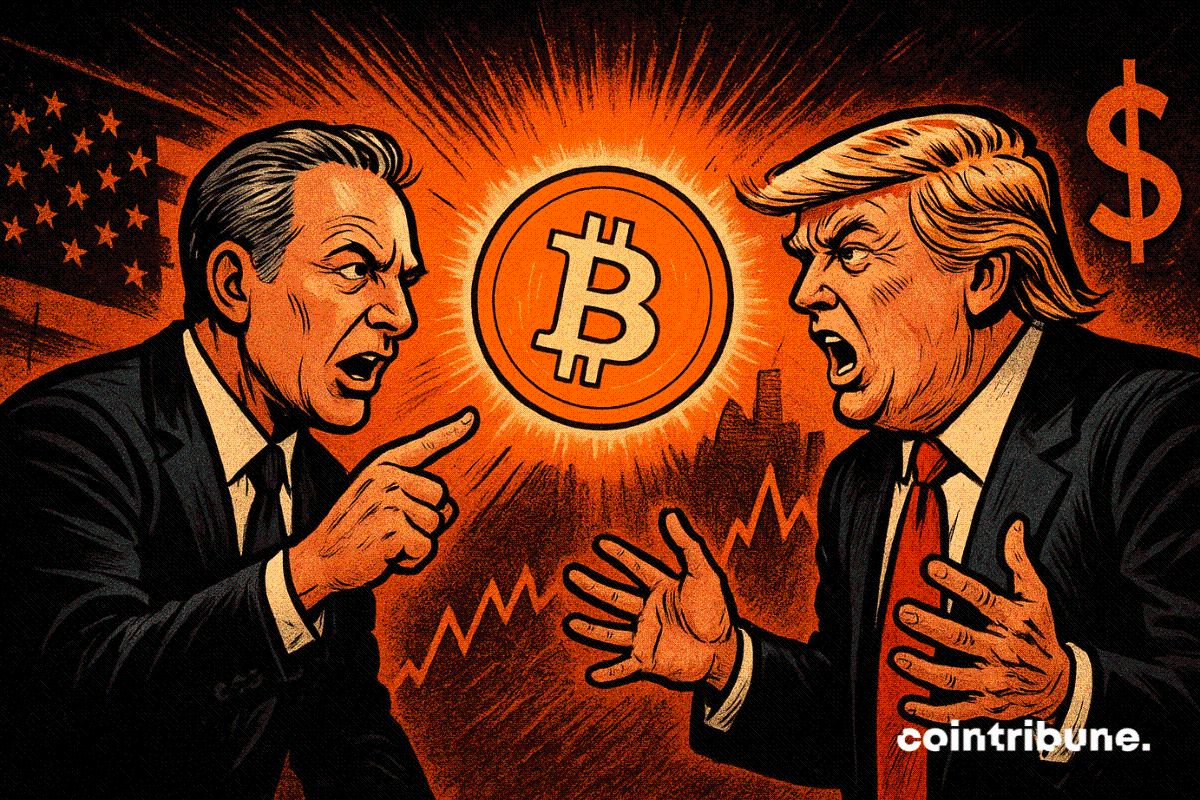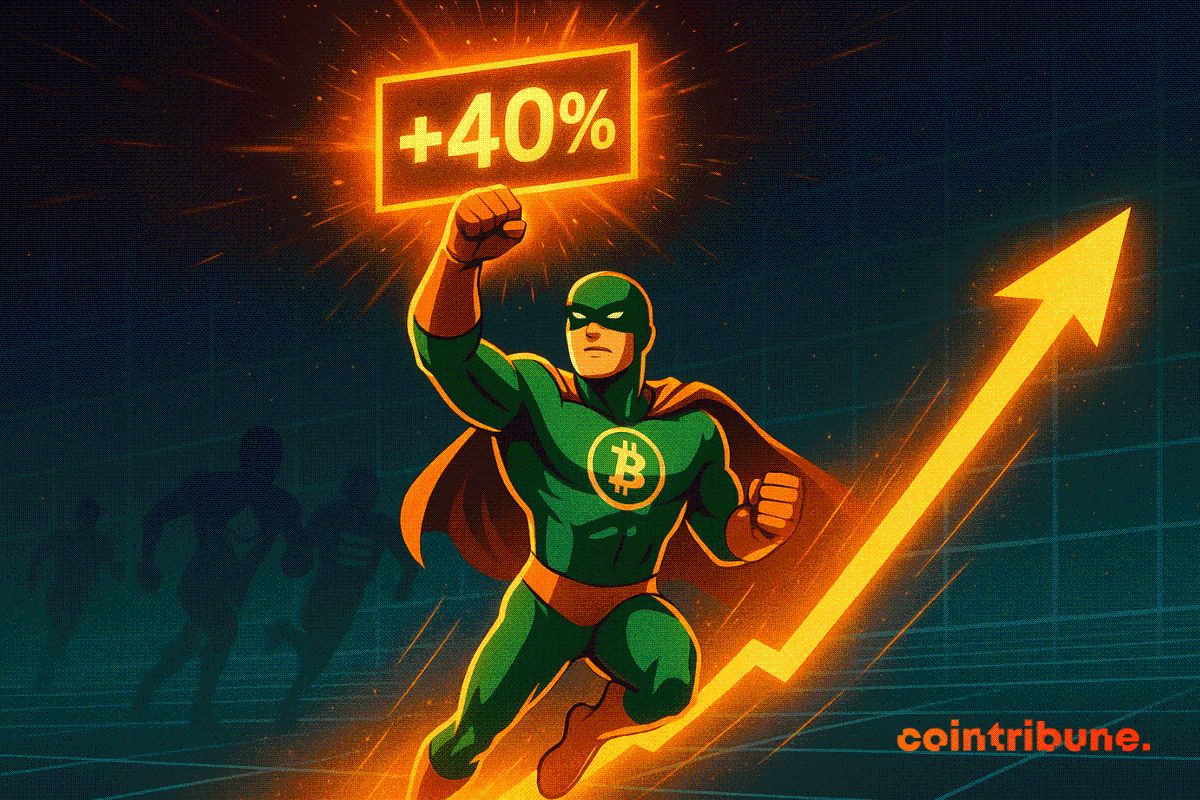Solana News Today: A Gas Fee Twist: Cold Wallet's Cashback Model Fuels 2025 Crypto Volatility
- Cold Wallet's CWT token drives 2025 crypto volatility with 150-stage presale targeting $0.35 price by late 2025. - Analysts warn post-listing sell-offs could drop CWT to $0.3 amid $6.3M raised and gas-fee cashback model competition. - DeFi Development Corp's $125M Solana treasury expansion fuels institutional capital flows into high-throughput blockchain. - Ethereum's post-merge dominance and Solana's DeFi/NFT growth reinforce 2025 as pivotal year for crypto price swings.
Cold Wallet’s native token (CWT) is emerging as a key driver of volatility in the 2025 crypto market, alongside assets like Ethereum (ETH), Solana (SOL), and Cardano (ADA). The token’s structure, which spans 150 stages and concludes in late 2025, has generated speculation about its potential returns and market dynamics. By the end of 2025, the CWT price is projected to reach $0.35, with early buyers potentially seeing a 50x return if the token lists at that level. However, analysts caution that post-listing volatility is likely as participants sell for profit, potentially pushing the price down to $0.3 within weeks. The average trading price for 2025 is estimated at $0.12, reflecting a tug-of-war between profit-taking and new buyer demand.
The project’s value proposition lies in its gas-fee cashback model, where users receive CWT tokens in return for on-chain activity. This utility could attract retail and institutional interest if the broader market remains bullish, particularly with Bitcoin’s recent price action above $124,000 and positive technical indicators. Nevertheless, the model faces competition from alternatives such as Best Wallet Token (BEST) and traditional custodial wallet platforms, complicating Cold Wallet’s long-term growth trajectory.
Beyond CWT, Ethereum and Solana are also expected to exhibit significant price swings in 2025, fueled by macroeconomic shifts and institutional adoption. Ethereum’s post-merge upgrade has solidified its position as a foundational blockchain, while Solana’s high-throughput capabilities continue to attract decentralized finance (DeFi) and non-fungible token (NFT) projects. Cardano, though less volatile, is seeing renewed interest amid development milestones, further diversifying the market’s dynamics. These assets, alongside CWT, represent a basket of crypto instruments that are poised for substantial price swings, driven by both speculative and fundamental factors.
In parallel, DeFi Development Corp. (DFDV) has announced a $125 million equity raise to expand its Solana treasury, aiming to increase its holdings and optimize Solana per Share (SPS) growth. The offering includes 4.2 million shares at $12.50 each and 5.7 million pre-funded warrants at $12.4999, with proceeds expected to be used for spot and locked SOL purchases. This move is part of a broader trend in institutional capital allocating toward Solana-based treasuries, with Sharps Technology Inc. also planning a $400 million private placement for a similar strategy.
The interplay between these developments suggests that 2025 will be a pivotal year for volatility in the crypto market. DeFi Development’s equity raise, and the performance of major layer-1 blockchains like Ethereum and Solana are all contributing to a landscape where price swings are not only anticipated but intrinsic to market behavior. Investors and analysts are closely monitoring these dynamics, as they highlight both the risks and opportunities inherent in the rapidly evolving crypto ecosystem.
Source:
[2] Cold Wallet's Presale ROI vs. Leading 2025 Crypto (https://www.bitget.com/news/detail/12560604933682)

Disclaimer: The content of this article solely reflects the author's opinion and does not represent the platform in any capacity. This article is not intended to serve as a reference for making investment decisions.
You may also like
Witness the Dynamic Shifts in Bitcoin and Altcoin ETFs
In Brief Bitcoin and altcoin ETFs witness dynamic shifts in inflows and outflows. XRP and Solana ETFs attract notable investor attention and activity. Institutions explore diversified crypto ETFs for strategic risk management.

Peter Schiff Clashes With President Trump as Economic and Crypto Debates Intensify

Bitcoin Cash Jumps 40% and Establishes Itself as the Best-Performing L1 Blockchain of the Year

Bitcoin Price Plummets: Key Reasons Behind the Sudden Drop Below $88,000